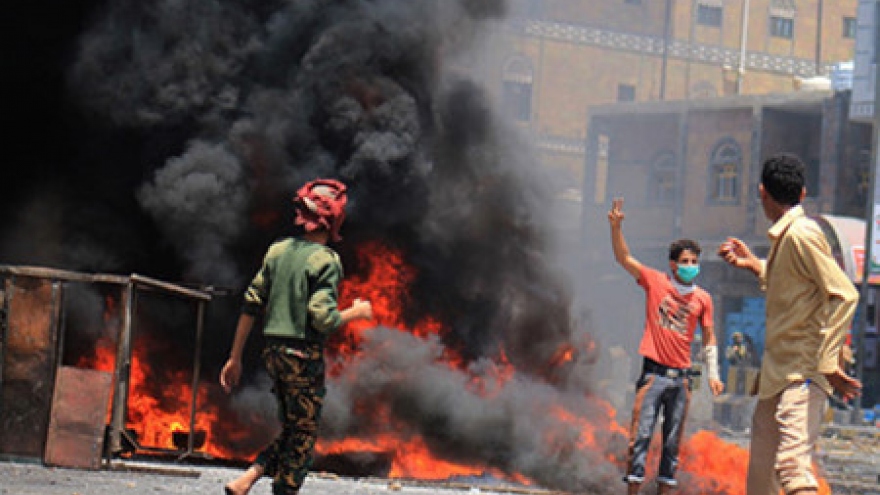Kerry announces Yemen ceasefire over objections of government
US Secretary of State John Kerry said on November 15 that Yemen's Houthi group and the Saudi-led coalition fighting it had agreed to a ceasefire from November 17, as Washington presses for an end to the war before President Barack Obama leaves office.
 |
The internationally recognized Yemeni government quickly rejected the move, complaining of being bypassed. But it may have little choice if Saudi Arabia, which supports President Abd-Rabbu Mansour Hadi militarily and financially, threw its weight behind the move.
More than 10,000 people have been killed and over 3 million displaced in the past 20 months in a war that has been overshadowed by the Syria conflict but which has created a humanitarian catastrophe.
Kerry, in what could be his last trip to the Gulf before Obama's term ends in January, is seeking a breakthrough to end the fighting between the Houthis, allied to Iran, and the Saudi-backed government of Yemeni President Abd-Rabbu Mansour Hadi.
Speaking after talks in Oman, which is close to the Houthis, and in the United Arab Emirates, a key member of the Saudi-led coalition, Kerry said he had presented Houthi delegates with a document outlining a ceasefire and peace deal.
He said the Houthis, whom he met in Oman on Monday night, had agreed to a truce from November 17, provided the other side implemented it. "And thus far the Emiratis and the Saudis ...they have both agreed to try to move forward with this," he said.
The ceasefire would be on the same terms as an earlier one that ran from April until the end of August, when UN-sponsored peace talks in Kuwait ended in disagreement.


